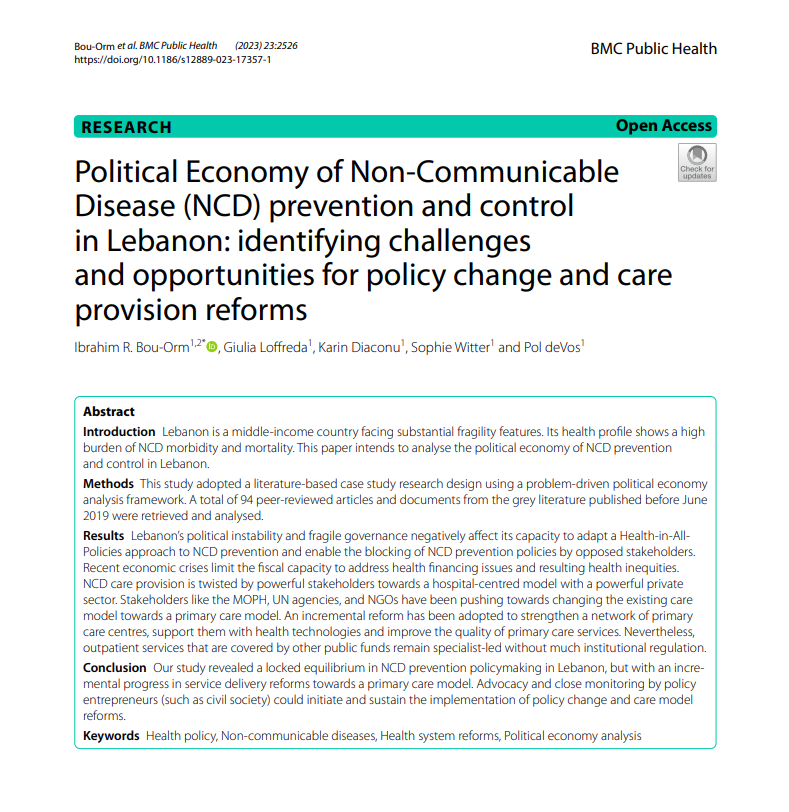WHO, ITU
Going digital for noncommunicable diseases
Publication
30 Oct 2024
14 Feb 2024

Lebanon is a middle-income country facing substantial fragility features. Its health profile shows a high burden of NCD morbidity and mortality. This paper intends to analyse the political economy of NCD prevention and control in Lebanon.
This study adopted a literature-based case study research design using a problem-driven political economy analysis framework. A total of 94 peer-reviewed articles and documents from the grey literature published before June 2019 were retrieved and analysed.
Lebanon’s political instability and fragile governance negatively affect its capacity to adapt a Health-in-All-Policies approach to NCD prevention and enable the blocking of NCD prevention policies by opposed stakeholders. Recent economic crises limit the fiscal capacity to address health financing issues and resulting health inequities. NCD care provision is twisted by powerful stakeholders towards a hospital-centred model with a powerful private sector. Stakeholders like the MOPH, UN agencies, and NGOs have been pushing towards changing the existing care model towards a primary care model. An incremental reform has been adopted to strengthen a network of primary care centres, support them with health technologies and improve the quality of primary care services. Nevertheless, outpatient services that are covered by other public funds remain specialist-led without much institutional regulation.
Our study revealed a locked equilibrium in NCD prevention policymaking in Lebanon, but with an incremental progress in service delivery reforms towards a primary care model. Advocacy and close monitoring by policy entrepreneurs (such as civil society) could initiate and sustain the implementation of policy change and care model reforms.